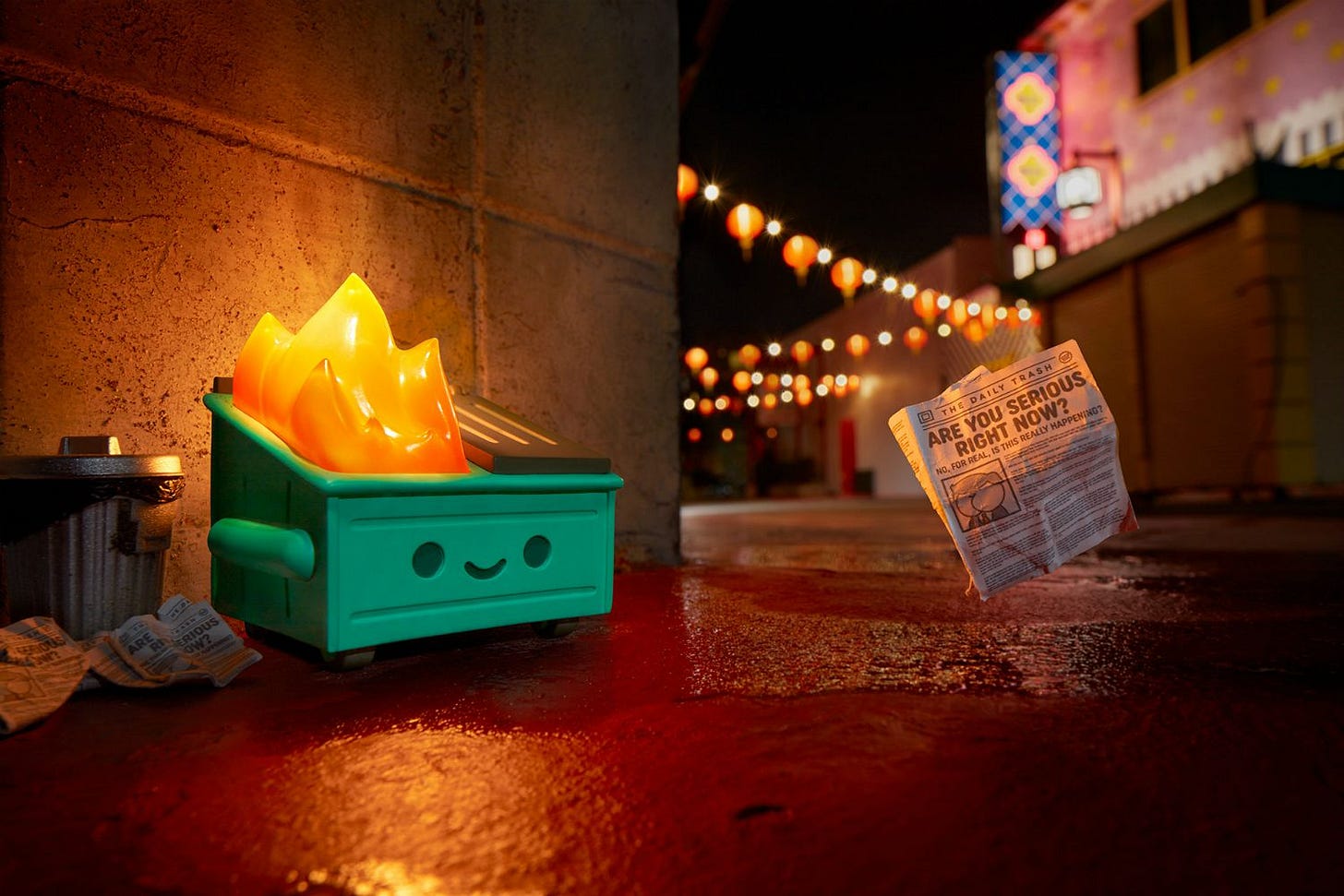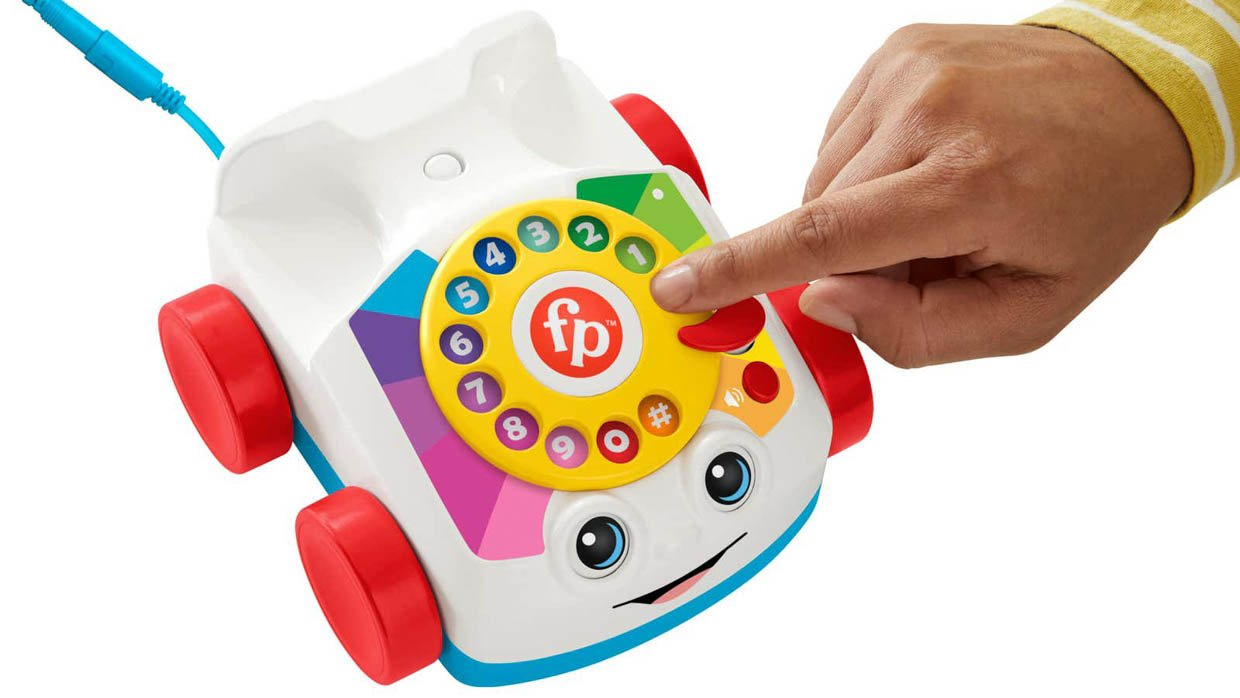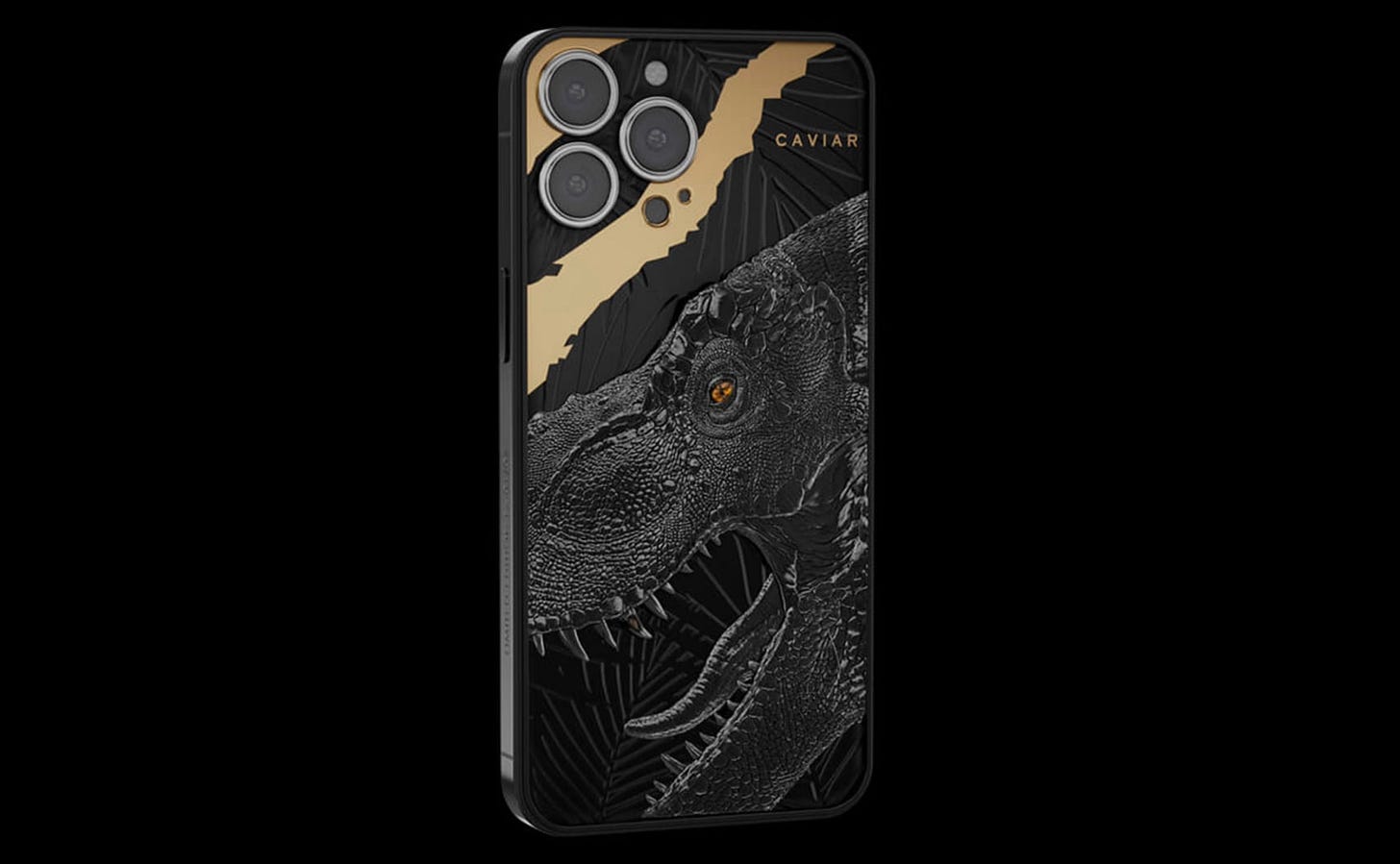How to be happy when digital media want us miserable
Plus: real toy phones, eyes in the back of your head, dinosaur phones, and more!
Here’s a quiz for you. What do these three phenomena all have in common?:
TikTok challenges inspire students in thousands of US schools to vandalize bathrooms, steal computers, slap teachers, assault fellow students, falsely accuse teachers of sexual assault and other anti-social acts.
Intelligent family members and friends get sucked down a rabbit hole of disinformation from which they cannot be dislodged and which animates their actions in the real world.
Millions of people live in despair because they’re certain the world is filled with growing anarchy, violence and injustice.
These circumstances all stem from the same fairly modern phenomenon: The world as it appears to us in digital media can overwhelm and cancel out the actual world we live in.
As a model for understanding this, imagine that a trillion things happen on our planet every day and always have done.
For the past 250,000 years until, say, 500 years ago, we would be aware of maybe 100 occurrences out of the trillion that happen each day. We would know about them because we experienced them, or somebody we know told us about them. Nearly all the events we could be aware of happened within a 1-mile radius of where we lived. Somebody’s goat escaped. A neighbor got married.
Throughout our lives, we remained perfectly ignorant of more than 99.999% of the events that happened each day, even the most horrific ones.
This is the world our minds were designed to live in.
Fast forward to 2021. Now (according to our model), we become aware each day of maybe 1,000 things that happened instead of 100. Nearly all of these occurrences come from far away, and they’ve been selected for our attention by systems that scan the entire world and presents us with the events that have the biggest impact on our emotions, that keep us glued to our screens.
People who favor TikTok might see hundreds of videos that rose above the 99.99% they will never see because the algorithms (informed by other users’ attention and engagement) found them unworthy. The ones they do see are hyper engaging and compelling. It becomes clear to heavy TikTok users that everyone is beautiful or charming or talented or violent or anti-social. The desire to impress TikTok strangers overrides social norms in real life. In front of our smartphone cameras, we act like deranged psychopaths because the videos we record make sense in the context of the hashtag we’re participating in.
People who obsess over political Twitter or cable TV news live on a content diet of the most upsetting events are presented in the most upsetting context. The point of most of the tweets and stories is: “Look at how monstrous and horrible the other side is!” It becomes clear that all the problems in the world are caused by awful people in the other political party.
People who spend most of their time falling down YouTube or Facebook rabbit holes see algorithmically selected recommendations that pull them to the edges of whatever they’re interested in. Whether it’s politics or vaccines or Qanon or the “Deep State” or violence, the algorithms will expose users to a diet of global extremes. It becomes clear that the world is horrible, and that everything is being controlled by a small group of co-conspirators.
People on Instagram grow to believe that everyone is young, beautiful and live impossibly perfect lives of wealth, luxury and unattainable adventure.
The point is that while our minds are optimized to confront local events that directly affect our lives, the world now confronts our minds with the most emotionally impact events that occur in the entire world.
Specifically, our brains are physically unable to accurately contextualize the bad stuff amongst the infinity of good or neutral stuff that also occurs.
Our minds naturally receive the algorithmically hyped daily bundle of information as if it is happening to or near us like the old bundle used to.
As a result, we find ourselves in a constant state of stress and despair, or behaving as if the world’s very worst events are actually happening to us.
It ruins our intuitions about the world, making us certain that violence is on the rise when in fact it’s at historic lows, for example. It makes us believe that “they” are horrible monsters when in fact just about everyone is pretty much just like us.
I saw a post of despair on Twitter this week from a grandmother wondering about her toddler granddaughter’s future, saying that the world isn’t safe, school isn’t safe — that there is no safe place for her granddaughter to go in her life now that the world has become so horrible.
Emotionally, we can all relate or even agree with this idea. But logically, we know she’s trapped in a delusion.
For example, 200 years ago a grandmother was statistically likely to lose her granddaughter to disease before she reached school age.
In 1841 Great Britain (where we have early records), the life expectancy for women was 42. Many women died before their grandchildren were even born.
While a woman on Twitter worries about the safety of her granddaughter, 200 years ago she would have no such worries because she could die before the granddaughter was born, then the child would likely die, too.
Granddaughters in the past might have been slaves or born into a world in which they were expected to never get an education before being forced into an abusive marriage at the age of 12, her prospects dictated entirely by the accident of birth and the fortune of marriage.
We worry about pandemics now. But during the 14th Century the Black Plague literally killed around half of all people in Europe.
Even a scratch could be a death sentence, as pre-modern medicine usually couldn’t enable someone to survive a simple infection.
The dentist involved zero anesthesia, but with pliers and dirty knives, as well as bloodletting to cure any assumed ailments.
If you’re reading this, you’re living in a society that’s safer, cleaner, healthier, happier and with more opportunities than ever before.
But because we no get our information about our lives from our own experience, but instead from the Greatest Hits of Daily Horrors, we believe the opposite.
If we don’t take action, this dynamic will ruin our lives.
How to be happy when digital media want us miserable
The problem, of course, is that we want to be informed. Digital media is a great conveyer of information. The problem is that it’s more concern about being a great conveyer of emotion.
Here’s my best advice for how to be happy in a world that’s endlessly shoveling the world’s miseries at us:
Avoid, block and reject sources of highly emotional non-fiction. Don’t let the algorithmically sorted or filtered streams created by surveillance capitalists — Facebook, Twitter, Google, et al — deliver information about the wider world. Get your information about the world from old-school media that present information in a more detached, matter-of-fact format, rather than screaming the outrage at you. Search for things you’re curious about, learn, then get out. Don’t allow the streams to feed you an infinity pool of content.
Jealously guard who gains access to your emotions. While you should not let algorithms choose your emotions for the financial benefit of the corporations that create them, you should let stories and fiction and your own personal experiences affect your emotions. Get your feels from your own life, not from a Facebook data center.
Take action. Find the causes that affect you most deeply and personally and take regular action to material help with volunteerism and donation. Part of our distress is caused by a feeling of impotence. Instead of stressing about everything and doing nothing, stress about nothing and do something. Doing something about bad circumstances not only makes the world a better place, it makes your mind a better place, too.
Travel more. A lot more. And unplug completely while away. Go to another place and live in that place fully and completely and engage with the people you meet there.
Constantly work on minimizing all screen time every day. Every hour you spend not looking at a screen is another victory. Embrace non-screen media like print books, music and art.
Seek out and spend time in nature.
Cultivate detachment from your knowledge of the existence of despots, trolls, criminals, haters and bigots. Yes, they exist. Acknowledge their existence, then let go.
Actively live your own life — enjoy making and eating food, hanging out with the people you love, the small pleasures and joys of everyday life.
The world of emotionally upsetting content that misleads us into a false picture of the world is rapidly evolving to become more efficient at controlling our world view every day. But our minds are not evolving.
It’s time to understand and take action on the reality of our world. It’s time to understand the source of our despair. It’s time to take back our time and attention, and live our own real lives again.
Mike’s List of Brilliantly Bad Ideas
1. This toy phone is now a real phone
The Fisher-Price Chatter Telephone toy has been around for nearly 60 years. And now, for its 60th anniversary, the company is enabling it to make actual phone calls. They’ve installed a speaker and microphone and other electronics, including Bluetooth capability. It connects via Bluetooth to your smartphone. The rotary dial even works for dailing calls!
2. Now you can watch your bad haircut in real time
Cutting your own hair is never a good idea. And I’m not sure the CutCam can help. The CutCam is a hair buzzer with a built-in cam, so you can watch the live stream on your phone from the buzzer as you plow runways into the back your head.
3. Jurassic perk: This smartphone comes with real dinosaur bits!
Luxury Russian smartphone customizer, Caviar, is selling a tricked-out iPhone 13 with a chunk of fossilized Tyrannosaurus Rex tooth embedded in the phone. The company’s Tyrannophone, which is part of the “Tera” line, has one terabyte of storage. It also sports a T-Rex head with eyes made of real amber.
Mike’s List of Shameless Self Promotions
Here’s what I’ve been up to lately:
How to design IoT security from the ground up
Top cybersecurity threats around the globe
Will Zuckerberg’s ‘metaverse’ change everything?
Want better security? Go hack yourself
What is proactive cybersecurity, exactly?







In this deeply deeply polarized world where facts no longer matter and intelligent discussions unachievable, my solution has been to abstain from reading any news other than tech or economics stuff. Important news still reach me but I'm shielded from the relentless negative noise of the 24-hour news machines.